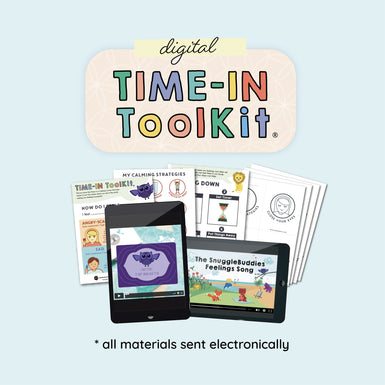The funneling of students out of school and into the streets and the juvenile correction system perpetuates a cycle known as the “school-to-prison pipeline.”
According to the American Bar Association (ABA), far too many students that eventually become incarcerated start this journey with a referral from the classroom to the courtroom.
With efforts to keep children in school and out of the pipeline, teachers and administrators within California school districts will no longer be able to suspend elementary and middle school students for willful defiance, as part of a Senate Bill signed by Gov. Gavin Newsom.
This bill received bipartisan support in the California Legislature, winning approval in the state Senate with a 31-8 vote, and a 58-17 vote in the state Assembly.
Senate Bill 419 applies to both traditional public schools and charter schools and became effective on July 1, 2020, but there is still more work to be done across the United States and abroad if we are to protect the next generation of learners, particularly underserved family populations impacted by racism and poverty.
What is willful defiance?
Willful defiance is any activity that disrupts school activities or otherwise willfully defies the valid authority of school staff.
This broad definition is highly subjective and includes minor offenses such as not removing a hat or hoodie in class, a student failing to follow directions, or talking back to a teacher.
In 2015, willful defiance suspensions were prohibited statewide in California for grades K-3 and were later made permanent in the 2018-2019 transfer bill.
Senate Bill 419 now extends the existing ban on willful defiance suspensions to grades 4 and 5 statewide and, for a five-year trial period, to grades 6 to 8.
Senator Nancy Skinner, D-Berkley, primary author of the bill, stated: “An overwhelming body of research confirms that suspending students at any age fails to improve student behavior and greatly increases the likelihood that the student will fail, be pushed out of school and/or have contact with the juvenile justice system.”
“Senate Bill 419 may be one of the best ways to disrupt the school-to-prison pipeline,” Skinner continues.

School-to-Prison Pipeline
Zero-tolerance policies and school disciplinary actions contribute to this shuffle of kids from education to incarceration.
In compliance with federal regulations such as the Gun-Free Schools Act of 1994, states enacted policies to prevent firearms in schools. This led to the adoption of “zero tolerance” discipline policies among many school districts across the nation.
The term “zero tolerance” umbrellas both severe offenses and lower-level incidents, such as willful defiance, in which said offenses trigger a mandatory, standardized disciplinary response.
This response led to a rise in national rates of student suspensions, expulsions, and referrals to the juvenile justice system.
Suspensions and Culture
According to a California Senate analysis, California students missed more than 150,000 days of school because of suspensions for unruly behavior in the 2016-2017 academic year.
Skinner cited data showing that students of color, with disabilities, or those part of the LGBTQ community were “disproportionately suspended for low-level subject offenses” such as defiance and disruption.
According to the California Department of Education, African American students in the 2017-18 academic year made up 5.6 percent of the state’s student body, yet accounted for 15.6 percent of suspensions for willful defiance.
By contrast, Caucasian students created 23.2 percent of the total enrollment and accounted for 20.2 percent of willful defiance suspensions.
Research by the U.S. Government Accounting Office suggests that “implicit bias on the part of the teachers and staff may cause them to judge students’ behaviors differently based on students’ race and sex.”
Trauma-Informed Restorative Care
Early childhood and adolescence are important not only for academic learning but also for social-emotional development. These formative years of brain development celebrate higher-functioning brain regions, like the limbic system and cerebral cortex.
A healthy brain is allowed to learn and grow. When a child faces trauma, higher-level learning is halted as the brain focuses on more primitive reflexes primed for safety.
Schools are often equipped to reward the behavior of the already integrated brain. Because trauma can negatively impact a child’s ability to perform and learn, they may fall through the cracks of the education system and into the hands of the juvenile system.
The use of punitive discipline approaches such as suspensions and expulsions further isolate traumatized children, encouraging a vicious cycle where trauma begets more trauma.

For these children, it is hard to escape the cycle without adult guidance. Rather than re-traumatizing children, we can choose a supportive and restorative approach to discipline through trauma-informed practices.
Trauma-informed practices can include Adverse Childhood Experience (ACE) screenings and educational approaches that focus on inclusion and safety for all children.
Keeping children in school, in a supportive and trauma-informed environment, can help increase student success rates, increase high school graduation rates, and improve overall social-emotional life skills.
"SB 419 puts the needs of the kids first. Ending willful defiance suspensions will keep kids in school where they belong and where teachers and counselors can help them thrive,” says Skinner.
To read Senate Bill 414, click here.
Resources:
https://www.apadivisions.org/division-18/publications/newsletters/gavel/2019/02/prison-pipeline
https://marcusharrisfoundation.org/blog/f/a-trauma-informed-solution-to-poor-school-performance
https://sacramento.cbslocal.com/2019/09/09/banning-supsension-willful-defiance-signed-newsom/
https://www.sacbee.com/news/politics-government/capitol-alert/article234448652.html





















